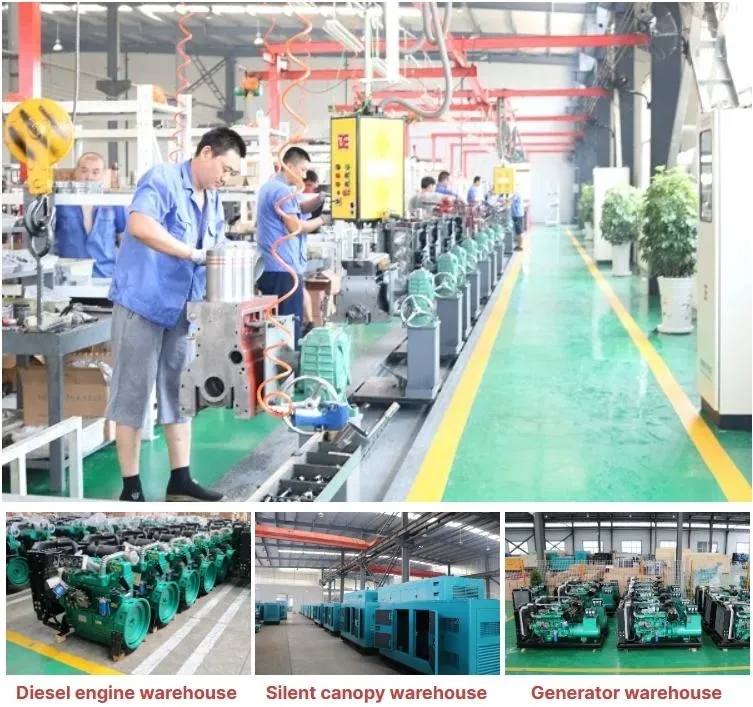Introduction
Diesel generators are essential for providing backup power in various applications, from hospitals and data centers to remote construction sites and residential homes. The reliability and efficiency of these generators depend not only on their design and maintenance but also on the quality of the fuel they use. In this article, we will explore the importance of fuel quality standards for diesel generators, the impact of poor fuel quality on generator performance, and the measures that can be taken to ensure the fuel meets the necessary standards.
Importance of Fuel Quality Standards for Diesel Generators
Fuel quality standards are crucial for ensuring the optimal performance and longevity of diesel generators. Diesel fuel is a complex mixture of hydrocarbons derived from crude oil, and its composition can vary significantly depending on factors such as the source of the crude oil, refining processes, and storage conditions. The quality of diesel fuel is determined by various parameters, including cetane number, sulfur content, density, viscosity, and water content, among others.
Adhering to fuel quality standards is important for several reasons:

1. Efficiency: High-quality diesel fuel with the right cetane number and energy content ensures efficient combustion in the engine, leading to better fuel economy and reduced emissions.
2. Engine Performance: Poor-quality fuel can lead to engine deposits, injector fouling, and reduced engine efficiency, ultimately affecting the performance and reliability of the diesel generator.
3. Emissions: Diesel generators are a significant source of air pollutants, including nitrogen oxides (NOx), particulate matter (PM), and sulfur dioxide (SO2). Compliance with fuel quality standards can help reduce emissions and minimize the environmental impact of diesel generators.
4. Maintenance Costs: Using low-quality fuel can result in increased maintenance costs due to engine wear and deposits, leading to downtime and potential repairs.
Impact of Poor Fuel Quality on Generator Performance
The consequences of using poor-quality fuel in diesel generators can be severe and costly. Some of the common issues associated with low-quality fuel include:
1. Injector Fouling: Impurities and contaminants in the fuel can cause injector nozzles to clog, leading to poor fuel atomization and inefficient combustion. This can result in reduced engine performance, increased fuel consumption, and higher emissions.
2. Deposit Formation: Low-quality fuel can leave deposits on critical engine components, such as injectors, valves, and pistons. These deposits can interfere with the proper functioning of the engine, leading to reduced power output, increased fuel consumption, and potential engine damage.
3. Corrosion: Water and sulfur in the fuel can promote corrosion in the fuel system components, including fuel tanks, lines, and injectors. Corrosion can lead to leaks, malfunctions, and reduced engine efficiency.
4. Poor Cold-Weather Performance: Diesel fuel with high wax content or low cetane number may cause starting problems and reduced performance in cold weather conditions. This can be particularly problematic for diesel generators used in regions with extreme temperatures.
Measures to Ensure Fuel Quality for Diesel Generators
To ensure that diesel generators operate efficiently and reliably, it is essential to take measures to maintain fuel quality. Here are some steps that can be taken to ensure the fuel meets the necessary standards:
1. Fuel Testing: Regular fuel testing is essential to monitor the quality of diesel fuel and detect any contaminants or impurities that may affect generator performance. Testing should cover parameters such as cetane number, sulfur content, water content, and particulate matter.
2. Fuel Filtration: Installing high-quality fuel filtration systems can help remove contaminants and impurities from the fuel before it reaches the engine. Proper filtration can prevent injector fouling, deposit formation, and other issues caused by poor-quality fuel.
3. Fuel Storage: Proper fuel storage is critical to maintaining fuel quality. Diesel fuel should be stored in clean, dry, and well-ventilated tanks to prevent water contamination, microbial growth, and oxidation. Regular fuel tank cleaning and maintenance are also essential to ensure fuel integrity.
4. https://www.lkpowerplant.com/product/open-type-high-quality-600kw-diesel-generator-set-powered-by-yuchai-brand-diesel-engine/ : Adding fuel additives to diesel fuel can help improve its quality and performance. Additives such as cetane improvers, lubricity enhancers, and stabilizers can enhance combustion efficiency, reduce engine wear, and prevent fuel degradation.
5. Fuel Supply Chain Management: Ensuring a reliable and reputable fuel supply chain is crucial for maintaining fuel quality standards. Working with trusted fuel suppliers and monitoring fuel quality throughout the supply chain can help minimize the risk of fuel contamination and ensure consistent fuel performance.
6. Compliance with Regulations: Adhering to local and international fuel quality regulations is essential for diesel generator operators. Regulations such as the ASTM D975 standard in the United States and the EN 590 standard in Europe specify the requirements for diesel fuel quality and help ensure the proper operation of diesel engines.
Conclusion
Fuel quality standards play a critical role in the performance, efficiency, and reliability of diesel generators. Poor-quality fuel can lead to a range of issues, including injector fouling, deposit formation, corrosion, and reduced engine efficiency. By adhering to fuel quality standards, conducting regular fuel testing, implementing proper filtration and storage practices, and using fuel additives when necessary, generator operators can ensure that their diesel generators operate at peak performance and minimize the risk of downtime and costly repairs. Maintaining fuel quality is an essential aspect of diesel generator maintenance and should be a priority for all users and operators of these critical backup power systems.
